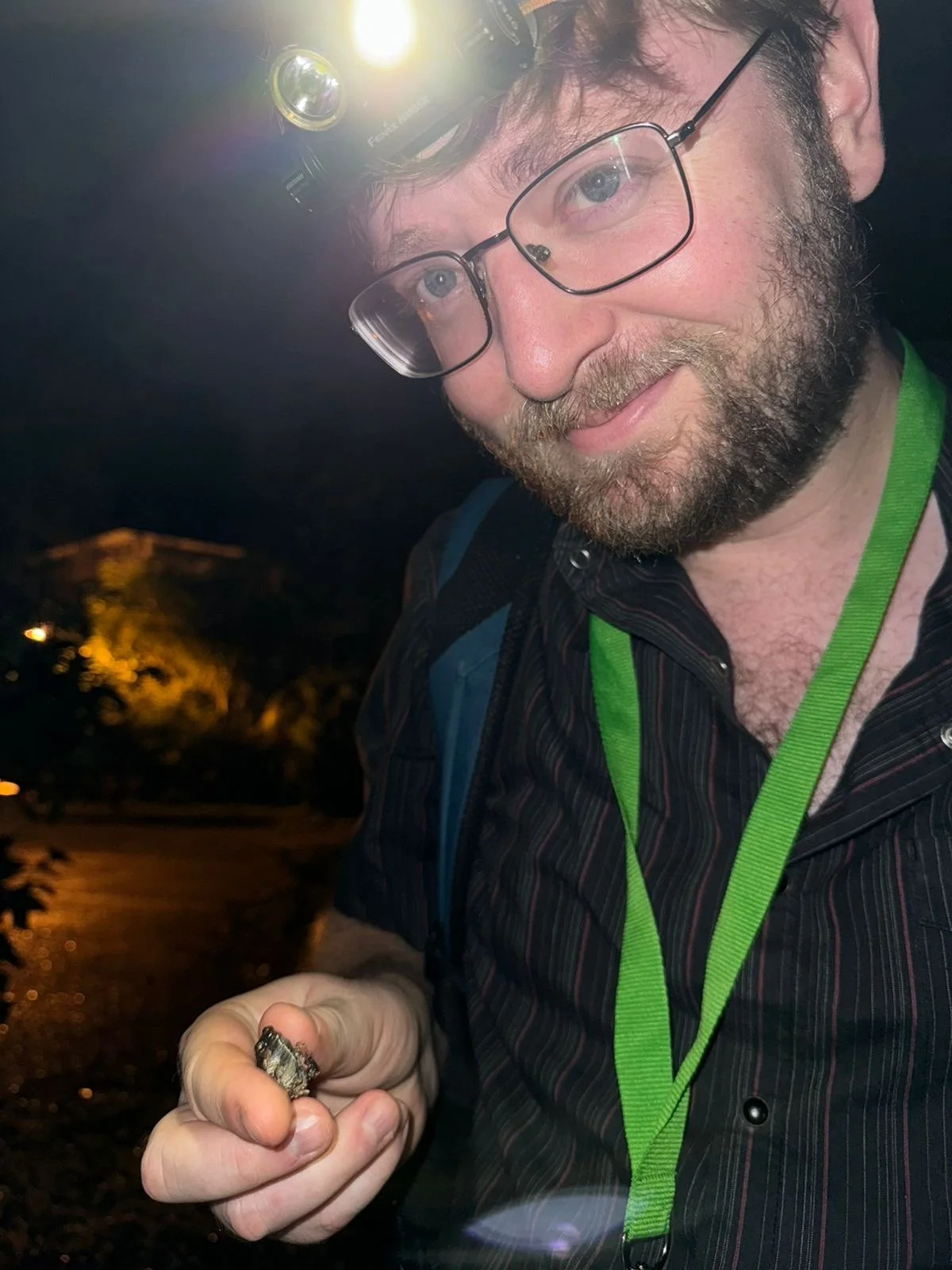Luke Larter, PhD
Voss POSTDOCtoral fellow
2025-present
***website***
Luke is broadly interested in sexual selection and animal communication. He completed his PhD in the Integrative Biology Department at UT Austin, under the supervision of Dr. Mike Ryan. His PhD research focused on illuminating the factors influencing calling interactions among túngara frog males across a range of social environments, and the effects these interactions have on female preferences. In the Fuxjager lab, Luke will continue his work with túngara frogs by investigating the linkages between inter-male variation in physiology and muscle performance, and call morphologies salient to choosing females. Additionally, he will investigate how changes in social structure and calling behaviors brought about by urbanization influence how sexual selection proceeds in different túngara frog populations.
Education
Ph.D., the University of Texas at Austin
M.A., the University of Calgary
B.Sc., University of Lethbridge
publications
Larter, L. C., Cushing, C. W., Ryan, M. J. (submitted) Cadences of the collective: conspecific stimulation patterns interact with endogenous rhythms to cue socially mediated response shifts. Submitted to the Journal of Experimental Biology. BioRxiv Preprint: https://doi.org/10.1101/2025.06.03.657715
Larter, L.C., Ryan, M. J, (2025). The variability and malleability of frog call-timing mechanisms are neglected in traditional call-timing models. Integrative and Comparative Biology. https://doi.org/10.1093/icb/icaf041
Larter, L. C., Ryan, M. J. (2024). Sensory-motor tuning allows generic features of conspecific acoustic scenes to guide rapid, adaptive, call-timing responses in túngara frogs. Proceedings of the Royal Society B. https://doi.org/10.1098/rspb.2024.0992
Larter, L. C., Ryan, M. J. (2024). Túngara frog call-timing decisions arise as internal rhythms interact with fluctuating chorus noise. Behavioral Ecology (selected as the ‘Editor’s Choice’ for the August 2024 issue). https://doi.org/10.1093/beheco/arae034
Larter, L. C., Ryan, M. J. (2024). Female preferences for more elaborate signals are an emergent outcome of male chorusing interactions in túngara frogs. The American Naturalist. https://doi.org/10.1086/727469
Larter, L. C., Page, R. A., Bernal, X. E., Ryan, M. J. (2023). Local competitive environment and male condition influence within-bout calling patterns in túngara frogs. Bioacoustics. https://doi.org/10.1080/09524622.2022.2070544
Larter, L.C. (2021) Graded signals. In: Vonk J., Shackelford T. (eds) Encyclopedia of Animal Cognition and Behavior. Springer, Cham. https://doi.org/10.1007/978-3-319-47829-6_1691-2
Larter, L.C. (2021) Communication networks, eavesdropping and audience effects. In: Vonk J., Shackelford T. (eds) Encyclopedia of Animal Cognition and Behavior. Springer, Cham. https://doi.org/10.1007/978-3-319-47829-6_1661-1
